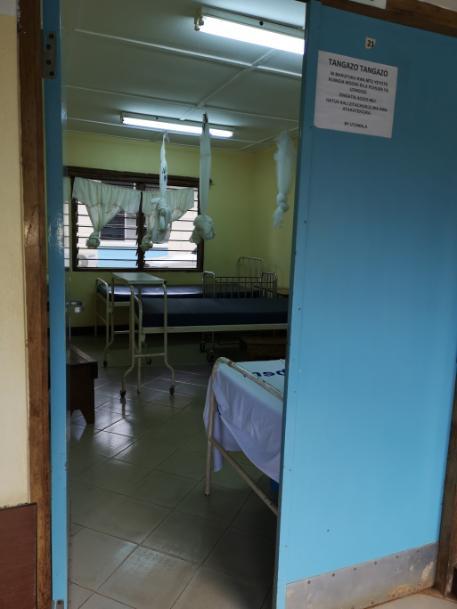A Circular Economy approach to improve maternal healthcare in Tanzania
A new University of Bradford project is exploring how ‘circular economy’ principles might be used to improve maternal and infant health care in Tanzania, one of the world’s least developed economies.
A circular economy is an economic system in which resources – products or services – are kept in use for as long as possible by reusing, sharing, repairing, refurbishing, remanufacturing and recycling products and materials at the end of each service life. The goal is to achieve zero waste. The Bradford team want to find out how these principles can be put to use to widen access to digital healthcare among rural communities in Tanzania.
Bradford PhD student, Richard Ngowi, whose background is in public health and healthcare management, will spend time in Tanzania to gather baseline data. Working with colleagues from the University of Allied Health Sciences and Mzumbe University, he will carry out interviews with mothers and pregnant women in rural areas, IT specialists and mobile telecommunication providers, health professionals and with officials from the Ministry of Health.
He aims to identify what changes and improvements service users and health care professionals would like to see – and how that might link into the policy framework. The Tanzania government is implementing an e-health strategy to exploit existing ICT structures for e-health delivery, with reference to circular economy principles.

Mothers and infants are dying because they aren’t getting the right healthcare when they should. They are often unable to access quality care before, during and after delivery, whether that’s standard healthcare or for an emergency. They may not know about important warning signs or potential pregnancy complications and the distances they have to travel to reach the nearest hospital or clinic can also be a barrier. An app that could provide information on key symptoms, maternal health data and resource use and sharing, or improve remote communication could really make a difference.
Bradford PhD student, Richard Ngowi
Led by Fun Hu, Professor of Wireless Communications Engineering, the DICE project (DIgital health and Circular Economy) project will explore how existing technology infrastructure in Tanzania and older equipment that might otherwise be discarded can be either repurposed or reused and made to work in less affluent, more remote areas of the country.
“The whole area of digital health is still very much in its infancy in Tanzania. In order to make improvements to any area of the healthcare system, we need to understand the current landscape,” explains Professor Hu. “Then we can explore what digital health services could make a difference, using a circular economy approach.”
The project draws together Bradford’s expertise in telecommunications within the Department of Biomedical and Electronics Engineering and its expertise in circular economies within the Faculty of Management, Law and Social Sciences. Overseeing the circular economy aspect of the project is Professor Uthayasankar Sivarajah, who heads the University’s Business Analytics, Circular Economy and Supply Chain Research Centre.
In Tanzania, a high proportion of the population already use mobile phones, though not all have access to the internet. So the team plan to look at multiple solutions, using both mobile broadband and SMS text messaging, to ensure anything developed in the future is able to reach as many people as possible.
The researchers also hope that, by using robust methods to develop a pragmatic framework that can benefit maternal and neonatal care, their approach can then be used to improve other areas of the healthcare system. If successful, it could also be rolled out in other countries, where circular economy approaches could be harnessed to close the gaps in healthcare provision.




